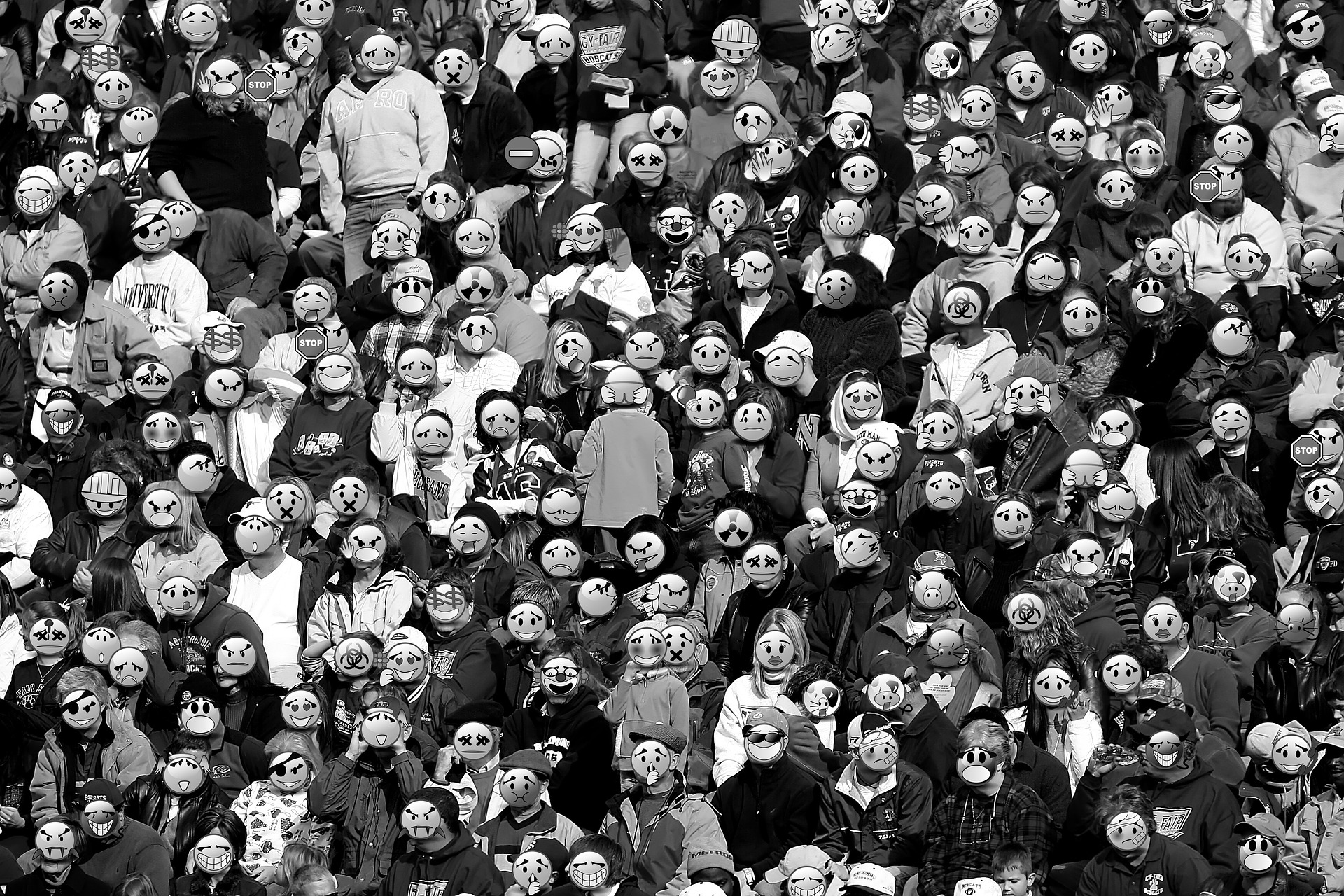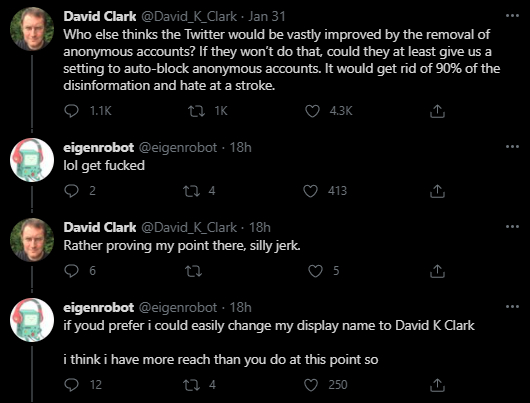Harmful Environments

I went to a concert that was ridiculously crowded. Bodies packed upon bodies, all bounded by the stage, gates on the sides, and those at the back pressing forward. Any attempt at making myself less uncomfortable, maybe moving an arm or leg outward, meant more discomfort for someone next to me, and vice-versa.
This phenomenon is fascinating to me. No one in the crowd wanted to hurt one another. To the contrary, our shared affinity for the performer should've facilitated camaraderie between us. But the environment, not enough space for too many people, caused us to hurt each other when we tried to help ourselves.
I often think back to that experience when I observe other instances of harm in public places: people challenging each other over an open space in a full parking lot, Black Friday shopping stampedes in the U.S., all sorts of social media nastiness.
I'm interested in exploring that last example. Here's an instance of it I encountered a few days ago:

The real name account poses an argument and the anonymous account replies with nastiness, successfully baiting the real name account into replying with an insult in kind. Nothing was gained. Both people presumably left the encounter more certain of their own correctness on the issue than they entered it.
Imagine that these people were in some other environment together, maybe on a panel or a podcast discussing online anonymity. Would the discussion have gone the same way? Maybe, but I doubt it.
Different environments facilitate different modes of communication. I don't think the environment of twitter replies is inherently harmful like the overly crowded concert was, but I do think it's generally easier to be nasty to someone online, where everyone is merely a two-dimensional avatar of themselves. Anyone interested in the inherent dignity of strangers ought to take stock of their environment when harm arises. To what degree is your environment manipulating you?